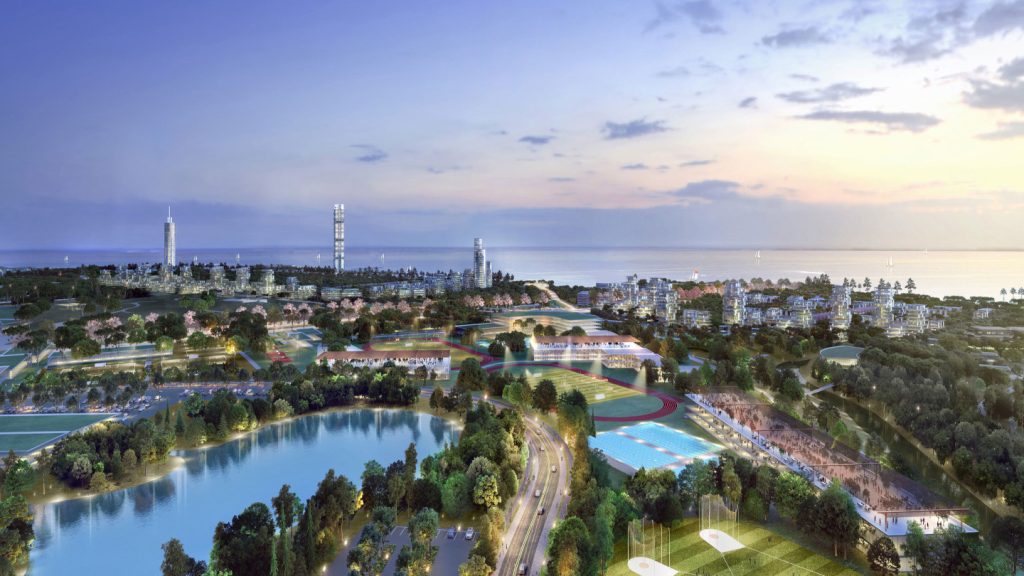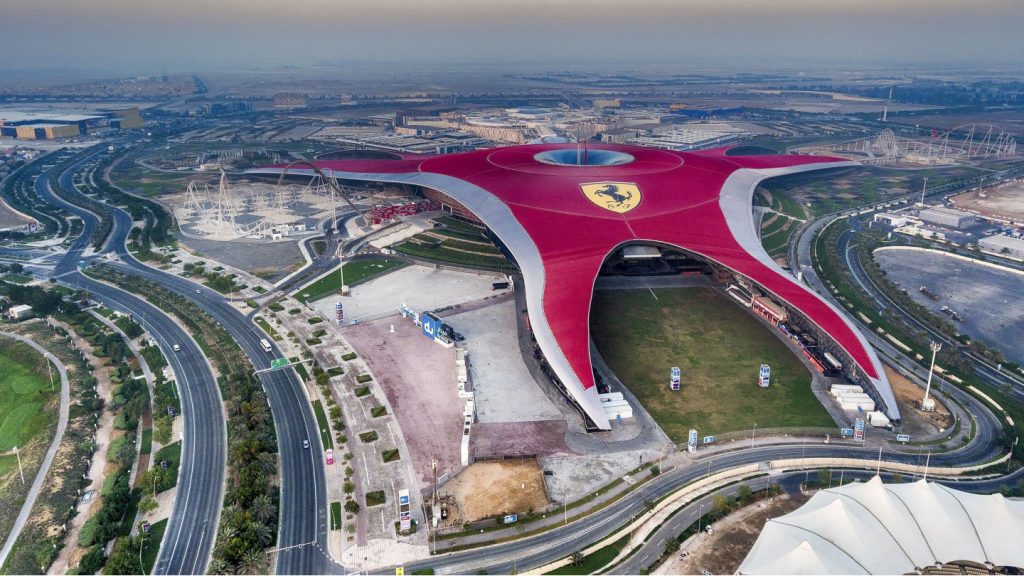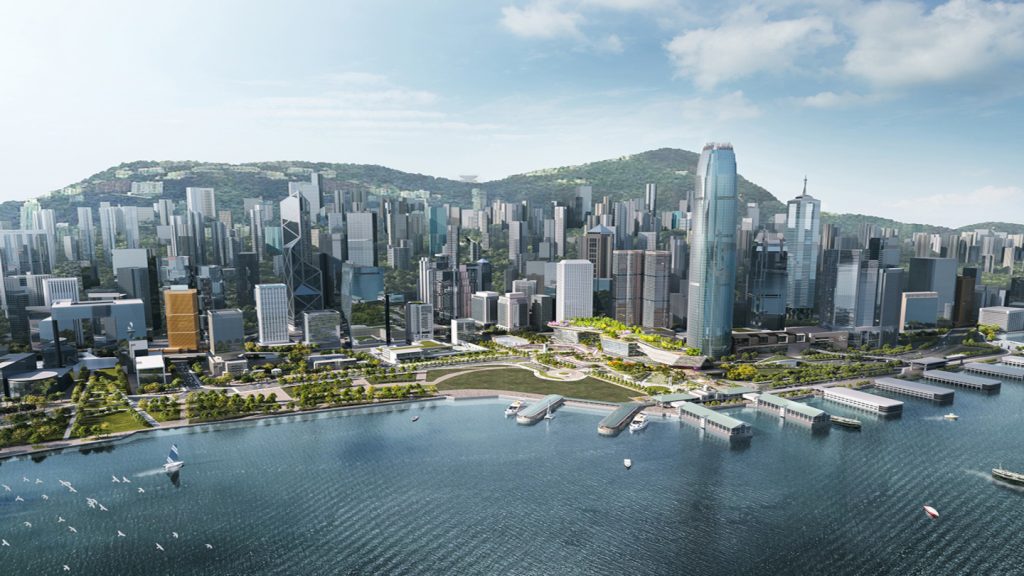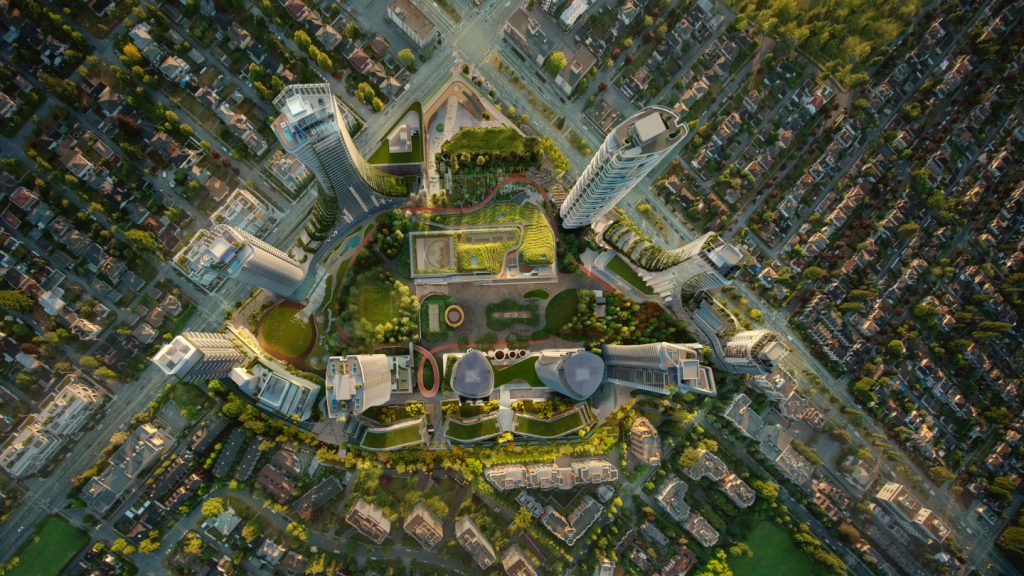Located in Abu Dhabi, UAE, Masdar City will be the world’s first zero-carbon, zero-waste city powered by renewable energy.
The project is being developed by the Masdar-Abu Dhabi Future Energy Company, a renewable energy company, and the Mubadala Development Company, a state-owned investment vehicle.
Initiated in 2006, the project was originally scheduled for completion in 2016 but has been delayed to 2030.
The original budget for the project was $22bn, which was reduced to $19.8bn due to the financial crisis. The city will be home to 40,000 residents and 1,500 companies.
Location
Masdar City is located 17km southeast of Abu Dhabi, near Abu Dhabi International Airport.
Masdar City master plan
Masdar City is being developed to rival California’s Silicon Valley. It will serve as an international hub for organisations focussed on clean technology and renewable energy.
The city’s design focuses on sustainability at its core, which has been incorporated into the planning, design, transportation, energy and waste management to make the city one of the most energy-efficient in the world.
Masdar City is being developed in seven phases, involving multiple projects. The masterplan includes the construction of the Masdar Institute of Sciences and Technology (MIST) under phase one, in addition to Masdar headquarters, a hotel and conference centre, a retail district, innovation centres, offices, residential units, and research and development facilities.
Phases two and five of Masdar City were approved by the Abu Dhabi Urban Planning Council in April 2016.
The Masdar City phase two masterplan outlined a framework for the development of a 995,000m² neighbourhood, which included a research and development cluster, shops, restaurants, residential areas, community centres, mosques and schools. Phase five will feature villas and townhouses with recreational amenities and green spaces.
In February 2023, a new sustainable community project known as The Link was launched as part of Masdar City’s plan for sustainable urban development. The project covers an area of 30,000m² and includes the construction of four low-carbon buildings with event spaces, retail options, recreational facilities and outdoor plazas.
Masdar City design details
The city’s design takes inspiration from traditional Arab architecture. Oriented in a northeast-southwest direction, it minimises solar gain and enables the use of cool winds generated during the night.
Masdar City will integrate all aspects of city life, including residence, work, and recreation in close proximity, thereby minimising transportation. It is designed to be pedestrian-friendly and will include narrow shaded streets, walkways and paths. These walkways will provide protection from the sun, reduce the need for air conditioning and encourage walking.
Every aspect of the city’s design incorporates sustainable elements. The majority of the buildings will be low-rise with no more than five storeys, thereby minimising energy usage. All buildings will optimise the use of natural light, and feature low-energy lighting, insulation and glazing to minimise energy use.
A 45m-high wind tower based on traditional Arab designs has been constructed to pull air from above and divert it as a cooling breeze through the streets of Masdar.
Energy required by the city will be supplied by renewable sources. The city is currently being powered by a 10MW solar PV plant. In the future, the city will also be supplied with offsite renewable energy. Solar panels are also being used to provide domestic hot water.
To minimise water usage, efficient fixtures and appliances will be used. All wastewater will be treated and re-used for landscaping. Waste generated by the city will be sorted at source and recycled for use. Unsorted waste will be used to generate electricity in a waste-to-energy plant. Phase one of the city is expected to generate 22,000 tons of waste per year, of which 50% is planned to be diverted from landfill.
Public transportation within the city will be provided by electric buses and cars. Use of automated single-cabin personal rapid transit (PRT) is also proposed. Metro rail and light rail systems will link the city with Abu Dhabi.
AUTONOM, a ten-passenger autonomous vehicle manufactured by French autonomous vehicle pioneer NAVYA, was introduced in the city in June 2019. The addition marked the first operational use of innovative technology in the Middle East and North Africa.
Masdar City has seen rapid progress with fully leased and occupied completed buildings covering more than 175,000m², with confirmed development projects covering an area of more than 750,000m² .
Construction details
Construction of the project began in February 2008. Phase one involved the construction of MIST and Masdar headquarters. Construction of the headquarters commenced in October 2012.
MIST merged with Khalifa University of Science, Technology and Research and the Petroleum Institute in 2017 and formed the new entity: Khalifa University of Science and Technology.
The first phase of the Etihad Eco-Residence, a mixed-use development completed in 2018, was the first purpose-built cabin crew accommodation in Abu Dhabi to win the Leadership in Energy and Environmental Design (LEED) Platinum certification.
Phase two of the eco-residencies was completed in 2020. It included the construction of 878 residential units along with a 100,840m² development offering 392 student housing units, 354 corporate housing units, 74 housing units and office space covering an area of 10,120m². Also included were 6,700m² of retail space and 1,534 parking spaces. The second phase of the development received LEED Platinum certification in April 2020.
Materials
Sustainable and recycled materials are being used in the city. The timber used for construction is 100% sustainably sourced and aluminium extrusions are 90% recycled. Instead of regular cement, concrete made from ground granulated blasted slag cement that has low carbon content is used, which will provide better strength and performance than conventional concrete.
Water-based paints containing no organic chemicals are being used. Steel used in reinforced bars is 100% recycled and all entrances throughout the city use palmwood instead of hardwood.
Contractors involved
Architecture firm Foster + Partners provided the Masdar City phase one master plan design, which included the construction of MIST.
Mott MacDonald, an engineering, management and development consultancy, is responsible for designing the city’s infrastructure.
In February 2009, Al Jaber, a conglomerate based in the UAE, won a $1.6bn contract to build the infrastructure for the city.
EDAW (now AECOM Design+Planning) is responsible for public realm and landscape design.
Spiers & Major Associates, a lighting design practice, provided consulting services for the public realm lighting of the city.
CH2MHill, an engineering company, is the project manager for the first phase of the city.
Arup, a professional services company, offered management services, and sustainability advice such as a carbon assessment and established a sustainability training workshop for Masdar staff.
Encardio-rite, a geotechnical and infrastructure health monitoring services provider, supplied instruments for pile load testing for Masdar City.
Architecture firm CBT designed the master plan for phase two of Masdar City.
Dutco, a construction company, is the main contractor for the construction of The Link.
Architecture firm Adrian Smith + Gordon Gill Architecture designed Masdar headquarters.
Awards for the sustainable city
In June 2007, Masdar City received the World Clean Energy award from Switzerland-based Transatlantic21 Association. At the Euromoney and Ernst & Young’s Global Renewable Energy Awards, the city’s design won Sustainable Region/City of the Year in September 2007.
Masdar City is among the three cities to win the 2012 EE Visionary awards for its contribution to energy efficiency.
Masdar City’s phase two masterplan received the American Institute of Architects Middle East’s Design Award in 2015.
In September 2019, Masdar City received a United Nations Sustainable Cities and Human Settlements Award at the Global Forum on Human Settlement.










